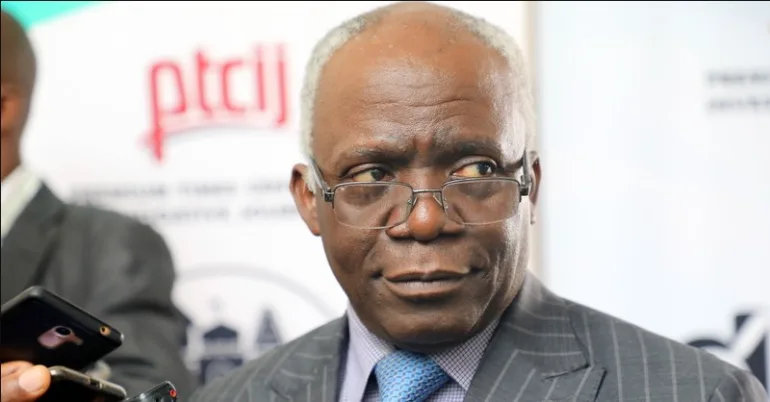Human rights lawyer and Senior Advocate of Nigeria (SAN), Femi Falana, has criticised the recent renaming of streets and bus stops in Lagos State, describing the move as illegal, authoritarian, and a violation of constitutional provisions.
In a statement issued on Sunday, Falana cited the renaming of “Charley Boy Bus Stop” to “Baddo Bus Stop” by the former Chairman of Bariga Local Council Development Area (LCDA), Kolade Alabi, and the naming of streets after President Bola Tinubu and Governor Babajide Sanwo-Olu without public consultation or legal backing.
He also referenced reports of billionaire businessman Aliko Dangote naming two streets in honour of the late Herbert Wigwe and President Tinubu without proper statutory approval.
Falana emphasized that under the 1999 Constitution (as amended), the power to name streets, roads, and assign house numbers lies solely with local government councils, as stated in the Fourth Schedule. He cited a court ruling in Chief Obidi Ume v. Abuja Metropolitan Management Council, which upheld the exclusive authority of local governments in such matters.
“The usurpation of this constitutional responsibility by individuals and LCDAs is unjustifiable,” he said.
Falana particularly condemned the renaming of Charley Boy Bus Stop, a landmark named by the Bariga and Gbagada communities to honour Charley Boy’s historical contributions. He described the change as disrespectful to local heritage and a clear example of authoritarian overreach.
“Renaming it without community consultation smacks of authoritarianism,” he stated. “Charley Boy Bus Stop is a name rooted in the social history of the people.”
He further criticised the Lagos State government for retaining colonial-era street names linked to oppression while replacing names that honour Nigerians who have positively contributed to society.
Falana called on local government legislative councils to halt arbitrary renaming of public places and to institutionalise public hearings and legal procedures in such matters.
“Streets should not be renamed to satisfy political egos or promote ethnic bias, especially in a diverse city like Lagos,” he added. “Such unilateral actions erode community identity and undermine democratic principles.”


